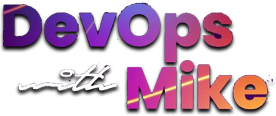How I would learn AWS Cloud in 2025 (If I could start over)
You’re probably looking to start your DevOps journey with cloud computing this year and wondering how to get yourself self-taught. Maybe you’ve seen a lot of resources on YouTube, LinkedIn, and other websites that have motivated you to start your journey. But now, you’re unsure how to proceed. In this article, I’ll briefly explain how I would personally approach the cloud computing or DevOps journey if I were to start all over again.
Tip 1: Set the Right Foundation
Setting the right foundation is crucial when starting your DevOps or cloud computing journey. This field is one of the best ways to transition from any given occupation or career into IT. To succeed, you need the right foundation and the proper mentality. Without these, you might feel overwhelmed and give up after one to three months of exploring cloud computing resources.
To build a solid foundation, you must map out your time and create a structured study plan, especially if you’re self-taught. While academies often provide a guided path to understand DevOps concepts and even prepare you for interviews, not everyone has the resources to join them. For those who can, I’ll leave links to some academies offering bootcamps and training programs.
If you’re self-teaching, focus on setting personal study goals, organizing your time, and committing to consistent learning. This foundation will be essential for meeting your goals and sustaining your motivation.
Tip 2: Utilize Free Resources
Take advantage of the free resources available to get started. One resource I highly recommend is the AWS Free Tier account. It allows you to explore and practice various AWS services without incurring costs. AWS provides this free tier specifically for beginners who might not have the financial means to pay for their services.
Another excellent resource is the AWS Skill Builder. This platform introduces key AWS services, including networking, compute, storage, databases, Route 53, and load balancing, through hands-on labs. It’s a guided pathway designed to give you a comprehensive understanding of the AWS ecosystem.
AWS also offers specialized resources to help you understand specific topics like Elastic Container Service (ECS), Kubernetes, and DevOps practices on AWS. Be sure to check out these resources and leverage the hands-on experiences they provide.
Tip 3: Practice Hands-On Exercises
Practical experience is vital when preparing for a DevOps role. Before securing a job, you’ll need to demonstrate your ability to implement the services you’ve studied. This requires consistent hands-on practice.
AWS offers a wide range of free labs and exercises to help you gain practical experience. For instance, the AWS Labs platform provides hands-on scenarios for various AWS services. Additionally, the AWS GitHub repository contains free exercises you can use to strengthen your skills. Links to these resources will be provided in the video description.
Remember, hands-on practice will build your confidence and prepare you to demonstrate your skills to potential employers.
Tip 4: Learn Additional Ecosystem Services
While AWS is a leading cloud service provider, it’s essential to learn about other services and technologies in the cloud ecosystem. Employers often seek candidates with experience in AWS and complementary open-source tools.
For example, consider learning:
- Terraform for infrastructure as code.
- Kubernetes for container orchestration.
- Docker for containerization.
These tools are widely used alongside AWS services. Expanding your knowledge beyond AWS will make you a well-rounded candidate and increase your employability.
Tip 5: Focus on DevOps Practices
DevOps is a critical aspect of cloud computing that you can’t ignore. To prepare for a DevOps role, you must understand key processes and technologies, including:
- Continuous Integration (CI) and Continuous Deployment (CD): Automating code integration and delivery pipelines.
- Containerization and Orchestration: Working with Docker and Kubernetes.
- Infrastructure as Code (IaC): Managing cloud resources with tools like Terraform.
- Monitoring and Logging: Using tools to ensure system reliability and performance.
- Collaboration Tools: Mastering communication and teamwork platforms.
Having expertise in these areas, along with AWS knowledge, will give you a significant advantage in the job market.
To summarize, here are the key takeaways to kickstart your DevOps and cloud computing journey:
- Set a strong foundation with a clear study plan.
- Utilize free resources such as the AWS Free Tier, Skill Builder, Labs, and GitHub repository.
- Prioritize hands-on practice to build real-world skills.
- Learn complementary tools like Terraform, Kubernetes, and Docker.
- Master essential DevOps practices and technologies.
If you’re transitioning into DevOps or preparing for interviews, feel free to schedule a one-on-one session with me. I’m here to guide you through the process and help you achieve your career goals.
